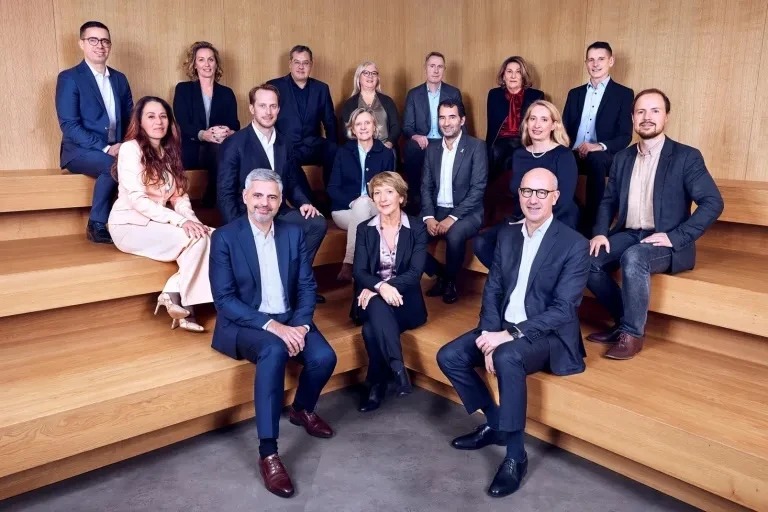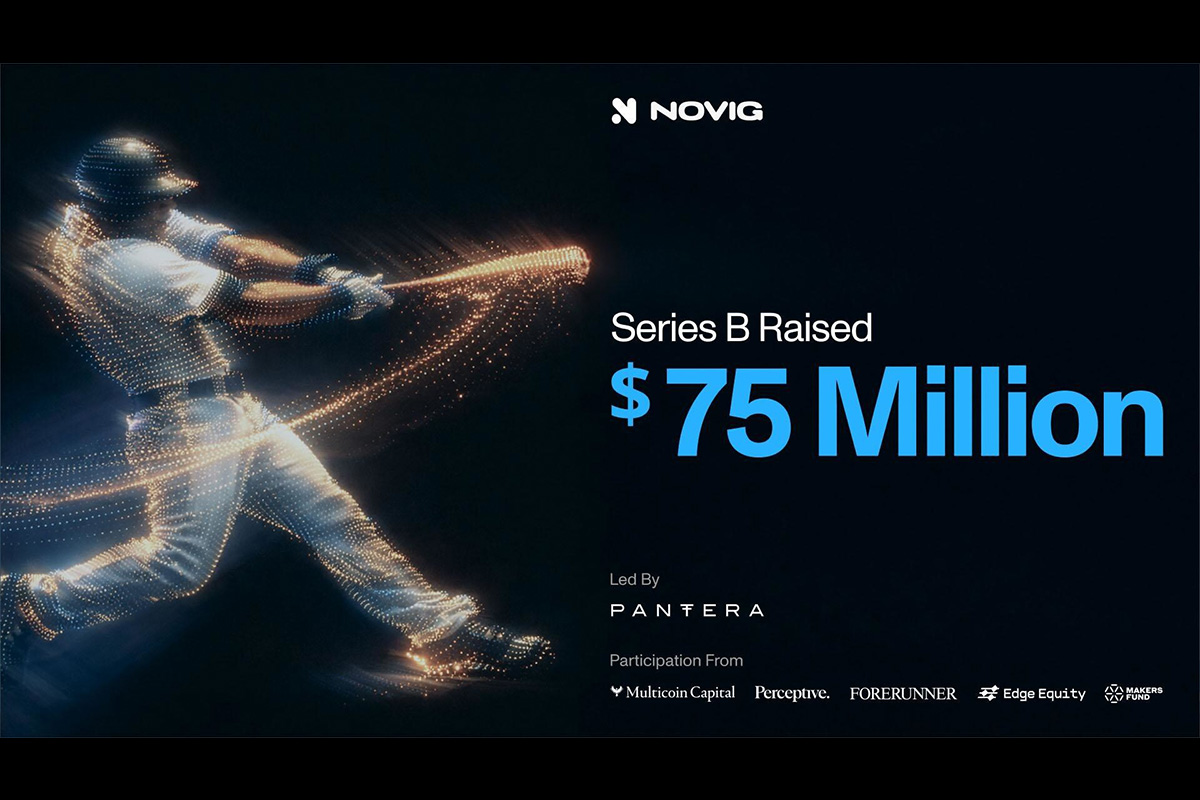Industry News
“Against All Odds” – Will sound be the key to future winnings for betting and gaming brands?

Max De Lucia, Co-Founder and Client Director of specialist sonic branding agency DLMDD.
There are few brands and businesses across the world that haven’t been in some way affected by the current global climate. But as lockdown restrictions are eased and marketplaces begin to return to their “new normal”, betting brands and their marketers now have an even greater issue to navigate.
With momentum gathering in the UK Parliament for a “total ban” on all gambling advertising, brands need to think fast about the role they play in consumers lives and how they can communicate if traditional media channels are further plastered with red tape.
However, as many of you reading this will know, these aren’t new challenges. A ban on gambling advertising during live sport came into effect in the UK from August last year, restricting advertising within a “whistle to whistle” period beginning five minutes before the start of a match and ending five minutes after. These limitations will have already forced marketing departments to think very carefully about how to gain competitive advantage and win attention in these moments. However, and somewhat surprisingly, no brand has dominated when it comes to sound.
Think about it – I can reel off the names of every betting and gaming brand out there in the market, and you’ll instantly be able to tell me what they look like; what colour the logo is, what the slogan says and which celebs they use in their ads. But what do any of them sound like? Well, nothing.
This seems bonkers to me. Earlier this year, Marketing Week highlighted a powerful learning from IPSOS’ marketing study ‘The power of you’. Put simply, the research shows that the use of distinctive sonic cues can have 8.5x the power of visual stimuli. So why is sound so untapped across the sector?
Let’s be frank, underneath the visual brand and the corporate slogans of any betting organisation are odds and chance. You might get slightly better odds and slightly better chances by shopping around but at the end of the day, odds are odds.
As punters, we make our choices on the brands we associate with based upon how we feel about them. And music and sound offer the world’s most powerful shortcuts to human emotion if we know how to handle them right. If expertly managed, they can fulfil every part of our pleasure and reward psychologies garnering effects that can only be rivalled by good food, love and drugs.
What is particularly unique about betting and gaming is that their audiences want and demand to feel something about the brand they’re playing with. This is quite unlike most other sectors and industries. Do I want to feel something about Shell? I’m sure their Brand Director wants me to but no, quite frankly I just want to fill my car up with petrol from the nearest station to me and get the hell out of the forecourt as quickly as possible.
Conversely, emotion is at the forefront of the experience of all bettors and gamers and it’s the responsibility of the brands and their audiences to manage and control how that emotion manifests itself in a safe manner. If all parties get it right, music and sound have the ability to heighten the entire consumer experience at every moment that an audience interacts with their chosen brand.
Historically, the betting and gaming industries have looked at sound through a fairly primitive lens; famous psychological studies have highlighted the use of music and sound in slot machines that reinforce the sensation of ‘winning’ with jubilant sound effects, flashing lights and winning coins dropping down on metal surfaces.
It doesn’t take a genius to work any of that out and along with questionable morality, this doesn’t exemplify the true power of music and sound. When it’s done right, we allow music and sound into our minds. They can stay with us forever and evoke our emotions at the flick of a wrist.
In a world and an industry where the way the consumer feels is the difference between them choosing to play with brand X over brand Y, the first player in the market who can cement their identity in music and sound will have the odds sounding firmly in their favour for many more moons to come.
Powered by WPeMatico
Celia Verot
FDJ UNITED Announces Changes to its Executive Committee

FDJ UNITED makes changes to its Executive Committee, with the appointment of Pascal Chaffard as Chief Online Betting and Gaming Officer as well as Group Strategy and Operational Transformation Officer, and Celia Verot as General Secretary.
Currently Chief Financial Officer, Strategy and Performance leader, Pascal Chaffard is taking over as head of the Online Betting and Gaming business unit. Pascal Chaffard will also be responsible for the Group’s strategy and operational transformation.
As Chief Online Betting and Gaming Officer, Nils Andén has overseen Kindred’s integration into the Group since October 2024; he is leaving the company to pursue new projects.
The appointment of the new CFO will be announced at the end of the recruitment process currently under way.
In addition, Celia Verot, who joined FDJ UNITED in 2024 as Chief Regulatory Officer, was appointed General Secretary, General Counsel and Chief Regulatory Officer for the Group on 1 January.
The post FDJ UNITED Announces Changes to its Executive Committee appeared first on Eastern European Gaming | Global iGaming & Tech Intelligence Hub.
Industry News
Novig Raises $75M Series B to Build a Trader-First Sports Prediction Market

Novig, the fastest growing sports trading platform in America, announced the close of a $75 million Series B round led by Pantera Capital, with participation from Multicoin Capital, Makers Fund, Edge Equity, and existing investors Forerunner, Perceptive Ventures, and NFX. The round brings Novig’s total capital raised to more than $105 million.
The funding follows a period of growth for the platform, which reported a 10x increase in trading volume during 2025. Novig’s annualized trading volume currently exceeds $4 billion.
Although sports account for the majority of activity on most prediction market platforms, those products are not built with sports traders in mind. Novig, by contrast, is built for sports fans, delivering a fair, transparent, and commission-free trading experience.
Since launch, the platform has rapidly emerged as the leading sports trading platform in the US, proving strong demand for a trader-first alternative to traditional sportsbooks. Novig has officially submitted its application to the Commodity Futures Trading Commission (CFTC) to become a licensed Designated Contract Market (DCM), a critical milestone in its transition toward becoming a federally regulated exchange available in all 50 states.
Unlike sportsbooks that operate an against-the-house model, Novig operates a commission-free, peer-to-peer exchange where traders compete against one another on a level playing field. By eliminating the hidden “vig,” unfair odds, and punitive limits on winning players, Novig has built the industry’s most equitable sports prediction platform.
“Our mission is to democratize and financialize sports markets, and we’re proud of the fact that Novig users are 10 times more likely to win than on traditional sportsbooks,” said Jacob Fortinsky, Co-Founder and CEO of Novig.
“We chose to partner with the best crypto venture firms in the world to further accelerate our plans to make Novig the most efficient and liquid sports prediction market in the world. Others are using prediction market technology to financialize new markets with unproven demand. We leverage it to fix broken markets where demand already exists.”
“Novig is proving that prediction markets can fundamentally reshape sports betting by removing the exploitative middleman,” said Paul Veradittakit, Managing Partner at Pantera Capital.
“Their peer-to-peer exchange delivers what traditional sportsbooks can’t: better odds, fairer market structure, and alignment between platform success and user profitability. When 23% of users are profitable compared to 2% on traditional platforms, it’s clear this is a foundational change to the industry. We’re excited to lead this round and support Jacob, Kelechi, and the team as they build a sports prediction market that actually puts bettors first.”
“Novig combines the cultural heartbeat of sports with the transparency and efficiency of prediction markets. Most prediction market volume today is on sports, yet those platforms weren’t built with sports or sports bettors in mind. We are delivering a better exchange that is built by sports traders, for sports traders,” said Co-Founder and CTO Kelechi Ukah.
The new capital accelerates Novig’s next phase of growth, including onboarding more institutional liquidity. Novig will utilize the investment to deepen product innovation and growth loops, launching first-of-its-kind functionality that combines the best innovation of financial markets with the excitement of live sports.
To support its next phase of growth, Novig has expanded its team to more than 50 personnel, including operators, engineers, and traders focused on developing the platform’s prediction market infrastructure and transparency features.
The post Novig Raises $75M Series B to Build a Trader-First Sports Prediction Market appeared first on Americas iGaming & Sports Betting News.
Gaming Laboratories International
GLI Promotes Patrick Cottingham to Director of Client Services, North America

Gaming Laboratories International (GLI) has promoted Patrick Cottingham to Director of Client Services, North America. Previously, he served as Senior Manager of Client Services. Prior to commencing his career as an engineer with GLI, he served with the US Air Force.
Cottingham’s dedication to his clients was clearly evident both inside and outside of GLI. He transitioned to the Client Services team where he progressed and built a team laser focused on providing the very best customer service where his and his team’s clients have benefited from his engineering and gaming experience.
Ian Hughes, GLI Chief Revenue Officer, said: “We are thrilled to announce Patrick’s well-deserved promotion to Director of Client Services for North America. Patrick leads a team of dedicated and committed client services representatives who ensure our clients receive the best service during their compliance journey with GLI.”
The post GLI Promotes Patrick Cottingham to Director of Client Services, North America appeared first on Americas iGaming & Sports Betting News.
-

 Blueprint Gaming5 days ago
Blueprint Gaming5 days agoBlueprint Gaming unleashes Frankenstein’s Fortune blending dynamic modifiers with multi-path bonus offering
-

 Compliance Updates7 days ago
Compliance Updates7 days agoHow to Apply for a Finnish iGaming License: Gaming in Finland Webinar on Application Steps and Technical Standards
-

 Big Daddy Gaming7 days ago
Big Daddy Gaming7 days agoBig Daddy Gaming® Expands European Footprint After MGA Licence Approval
-

 Latest News4 days ago
Latest News4 days agoGGBET UA hosts Media Game – an open FC Dynamo Kyiv training session with journalists from sports publications
-

 Compliance Updates5 days ago
Compliance Updates5 days agoMGA Publishes Results of Thematic Review on Self-exclusion Practices in Online Gaming Sector
-

 Amusnet6 days ago
Amusnet6 days agoAmusnet Unveils Casino Engineering and Technology Milestones Achieved in 2025
-

 Brais Pena Chief Strategy Officer at Easygo7 days ago
Brais Pena Chief Strategy Officer at Easygo7 days agoStake Goes Live in Denmark Following Five-Year Licence Approval
-

 Dan Brown5 days ago
Dan Brown5 days agoGames Global and Foxium return to the Colosseum in Rome Fight for Gold the Tiger’s Rage™



















